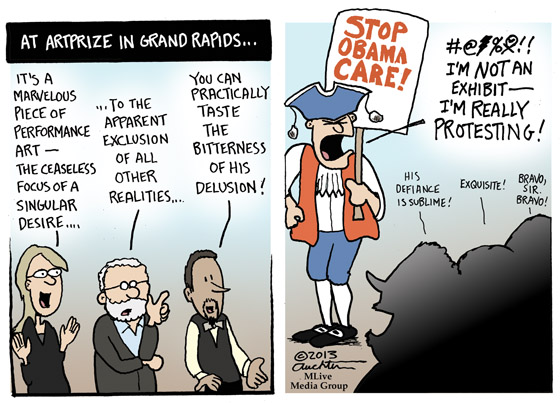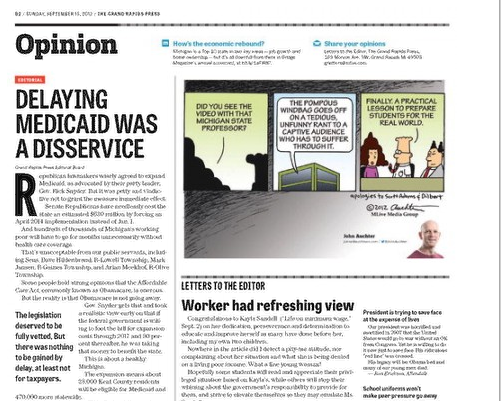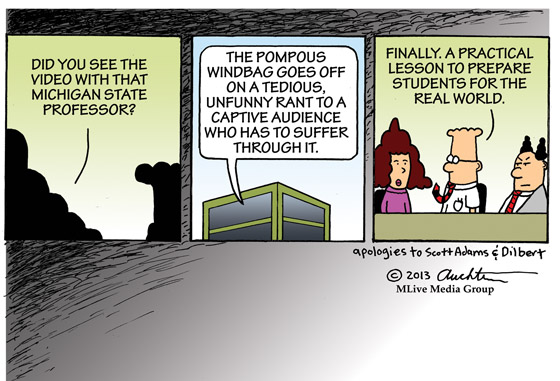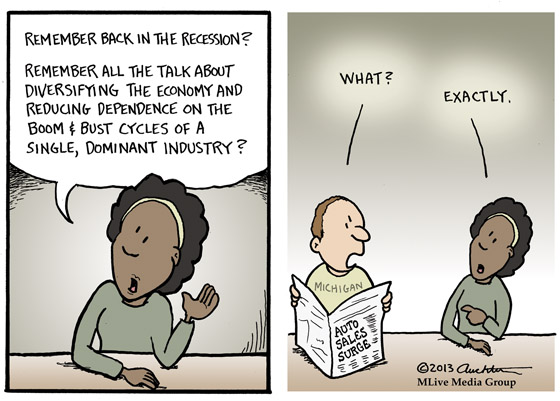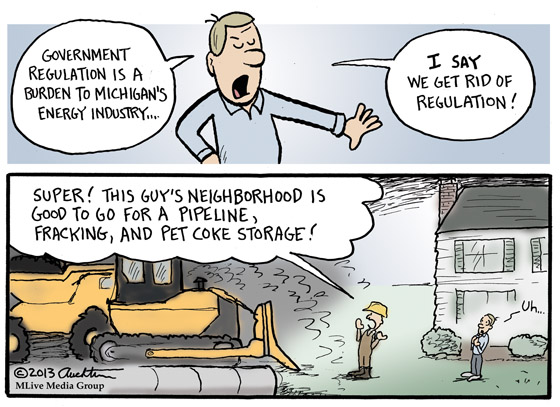

Originally published in the Ann Arbor News, Bay City Times, Flint Journal, Grand Rapids Press, Jackson Citizen Patriot, Kalamazoo Gazette, Muskegon Chronicle, Saginaw News
September 1, 2013
Last week I was reading the “On This Day…” section of Wikipedia about the Pennsylvania oil rush. On August 27, 1859, Edwin Drake successfully struck oil in Titusville, Pennsylvania. As the article noted, crude oil had begun to be used as an alternative to whale oil as a lighting source for lamps and inventors and scientists began to test oil for other possible uses, including energy. So finding a plentiful source was a big deal. The problem was that Titusville was (and still is) in a fairly remote part of northwest Pennsylvania. The oil needed to be transported to a population center. Here’s the part that struck me:
In the first years of the oil rush, high overland shipping costs drove many well owners to float their product down Oil Creek to the Allegheny River as lumber producers did.[3] For decades, logs had been transported using man-made floods, known as pond freshets, created by successively breaking milldams along the length of the river. These freshets could carry up to 800 skiffs filled with crude oil downstream at once. Most skiffs held between 700 and 800 barrels (110 and 130 m3) of oil, but one third of that leaked out of the skiffs before they were even launched and another third was lost by the time the skiffs reached Pittsburgh. Furthermore, only three in five of the flimsy vessels survived the trip down river without being destroyed by collisions with rocks, fallen trees, or other skiffs.
Eventually pipelines and railroads were built to transport the oil more safely and reliably. But, dang, they floated petroleum on leaky skiffs down a river! Why? Because it made economic sense at the time and (here’s the part that inspired this week’s cartoon), there was no regulation!
Now I’m not such a hypocrite as I sit in my temperature-controlled office with my electric lights typing on my computer before I get in my gasoline-powered car to drive to work to say there should be no mining or drilling. Let’s face it, we’re still highly dependent on carbon-based energy and will be for some time. (Obviously a return to whale oil is not a strong option.) But let’s go about it sensibly. And let’s at least acknowledge that the same human wisdom and natural desire to maximize profits that led us to set giant tubs of crude oil to sail down a river is the same that will tend us toward unwise decisions today. So some amount of regulation, some amount of “hey, let’s think this thing through about transporting and processing tar sands oil” would be a good idea.
